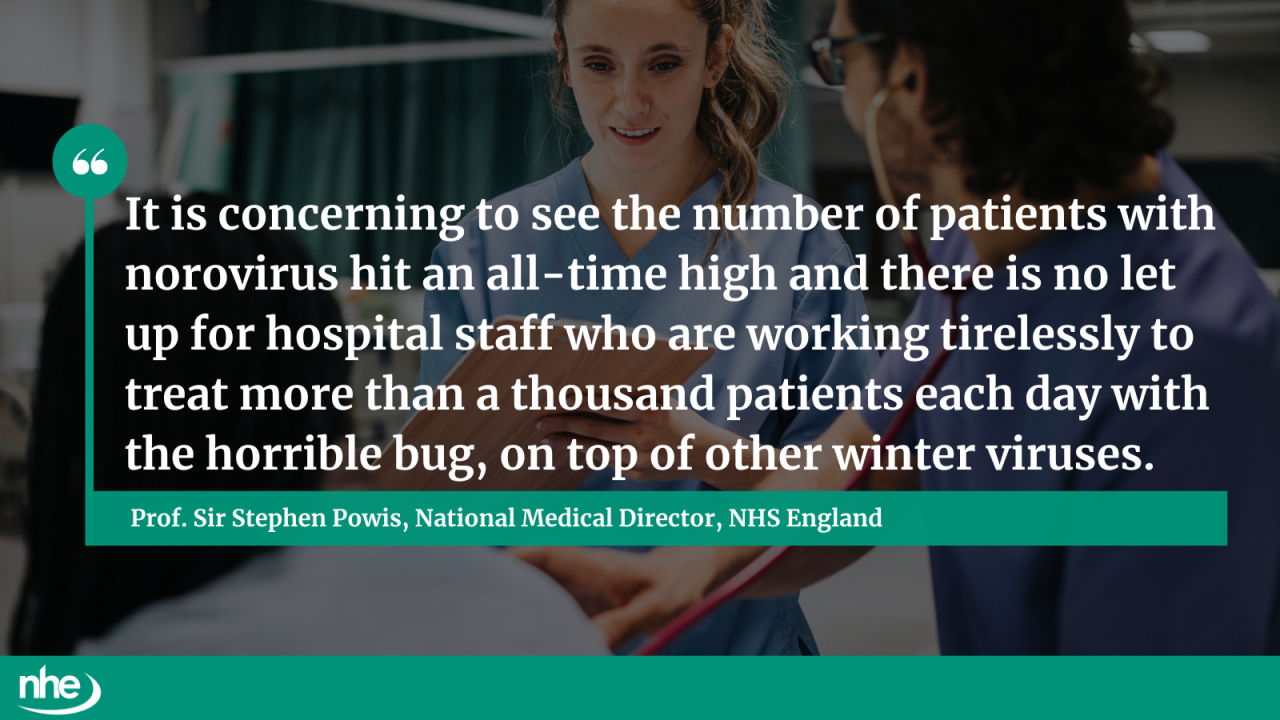Hospitals in England are grappling with an unprecedented surge in norovirus cases, with the number of beds occupied by patients with the virus reaching a record high last week.
On average, 1,160 patients per day were hospitalised with norovirus, marking a 22% increase from the previous week and more than double the number from the same period last year.
Norovirus, often referred to as the "winter vomiting bug," is highly contagious and causes severe vomiting and diarrhoea. The recent spike in cases has placed additional strain on the NHS, which is already dealing with high demand and bed occupancy rates.
Professor Sir Stephen Powis, NHS England’s National Medical Director, said:
“It is concerning to see the number of patients with norovirus hit an all-time high and there is no let up for hospital staff who are working tirelessly to treat more than a thousand patients each day with the horrible bug, on top of other winter viruses.
“To help stop the spread of norovirus, it is important to remember to wash your hands frequently with soap and water and avoid mixing with other people until you have not had symptoms for two days.
“Hospitals continue to run at near capacity, with added pressure from almost one in seven beds taken up by patients who don’t need to be in hospital, and as these pressure continue it is vital that the public continue to use 999 and A&E in life-threatening emergencies and use NHS 111 – and 111 online – if you need advice and support for other conditions.”

While flu cases in hospitals have shown a decline, they continue to exert pressure on front-line services. Last week, an average of 1,755 patients were hospitalised with flu, including 87 in critical care, representing a 14% decrease from the previous week. However, the number of children hospitalised with Respiratory Syncytial Virus (RSV) has surged, with 22 children per day admitted, up 83% from the previous week and 144% higher than the same period last year.
The number of patients hospitalised with Covid-19 has also seen a slight increase, rising by 3% from 952 to 984. This uptick adds to the already significant burden on hospital resources.
Hospital capacity remains critically high, with 95.4% of adult beds occupied and a total of 97,152 patients in hospital each day. Delays in discharging patients to social or community care settings continue to impact capacity, with nearly 1 in 7 beds occupied by patients who no longer need hospital care.
Emergency services are responding to high levels of demand, with 94,356 ambulance handovers recorded last week. Despite the challenges, the time lost to ambulance handover delays has decreased by a fifth compared to the same period last year.
NHS staff have faced one of the most challenging winters on record, dealing with huge demand, high bed occupancy, and the pressures of winter viruses. Since the start of the vaccination rollout in September, NHS staff have delivered over 29 million Covid, flu, and RSV vaccinations.
Image credit: iStock



















